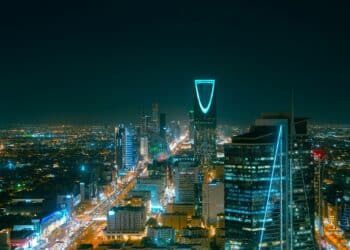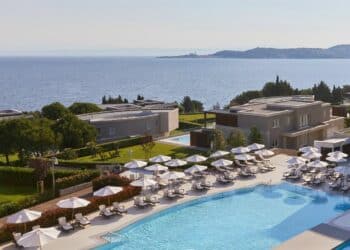Managing director of Al Ruwad Real Estate, Ismail Al Hammadi, talks about the development prospects of untouched locations of Dubai and the opportunities for hotel projects in Dubai’s Al Jaddaf area.
As managing director of Al Ruwad Real Estate, Ismail Al Hammadi knows a thing or two about property investment, including where and what to develop. 
According to his observations, there are areas of Dubai which are “ignored” by investors. Without surprise these are the submarkets, generally on the outskirts of the city that are not served by a metro line and do not boast water-side views.
In a horizontally-planned city that has been known to create additional coastline on a whim in order to boost property development and values, where the proximity to a metro line can add between 20 and 30% to the value of the plot, these are important points.
Explaining that Dubai’s investment market is based on identifying and seizing upon the “next big thing” Hammadi explains: “Dubai is about chapters. A new chapter is now open in Mohammed Bin Rashid City, a new chapter is open in Jumeirah Village Circle and Jumeirah Village Triangle, Sports City and Dubai South is taking part because it is linked with Expo.”
But there is one up and coming area that Hammadi’s real estate firm is focused on, Al Jaddaf. Already home to the Marriott Hotel Al Jaddaf and in close proximity to the recently opened Palazzo Versace, the area is fertile with opportunities in hotel development.
“You can compare Jaddaf to Barsha, it’s the heart of Dubai, it is linked with Sharjah and New Dubai, it is four minutes to the airport, seven minutes to Burj Khalifa, you have access to everywhere, infrastructure is 100% ready and even the metro stations are there. But it is not being utilized because the area is not on the agenda for development.”
Why? “I don’t see any reason. The main reason for Dubai is that the investors, who are GCC nationals or foreigners, are following a scenario, but you need to have someone who is proactive to take risk and build, and then you will find people who follow these investments.
“We need to educate people more on these areas and become less reactive. At the end of the day I have a regulation for each zone. You can go right now and see that there is a huge investment in Jaddaf and I can see the role that area can play in the greater Dubai story. Once that is clear people will be moving fast into that location,” he continues.
Al Ruwad holds hotel plots in the area, some of which were sold over recent months, but plans remain to develop a 3-star hotel that will be independently branded by Al Ruwad itself, currently planned to be a 16 storey property accommodating around 500 keys, although plans are subject to change, with an estimated completion date of Q4, 2017.
Jaddaf joins the likes of International City Phase 3, Al Ain Road – where Al Ruwad has “huge plots” listed in its inventory for real estate development – and the area surrounding Global Village.
It’s one of many similar planned properties that has benefitted from DTCM’s financial incentive for mid-market hotel developments. In 2013 DTCM announced a concession on the 10% municipality fees levied on room rates for each night of occupancy for four years from the date of issue of the construction permit. The announcement was designed to spur mid-market hotel development and bring forward construction time lines for new properties.
“This is one of the attractive initiatives, along with the government of Dubai allowing people to convert their land use from commercial or residential to hotel without paying any fees,” Hammadi explains.
“From the license perspective DTCM and Dubai Municipality collaborated to reduce the building permit time from six months to two months, expanding the window of time during which this fee waiver can be enjoyed. They have kept hotels on the fast track to encourage people to invest in and build those 80,000 rooms Dubai needs.”
Citing the major Dubai-based players as Habtoor Group, with its new Sheikh Zayed Road mega-project, which will become a flagship of the new Dubai Creek development; Al Futtaim and wasl Asset Management Group, which currently counts almost 20 brands in its portfolio, Hammadi says the level of opportunity in the market currently is high with almost 70 projects planned, with established and new operators.
While things are busy in the market he has only one message to the operators if they want to capitalize on the opportunities available and it’s all about new locations; and his comments also apply to Dubai South, where Dubai Expo 2020 will be hosted.
“We need almost 80,000 rooms for Expo and we have very attractive government initiatives to support that in order to bring new operators to Dubai, but I’m not advising people who have no experience in hospitality just to build a hotel because a hotel will not be built in this way.”
It’s advice which is applicable to the owners and developers also, with Hammadi continuing to say: “It isn’t advisable to complete a development in 2018 with the goal of attracting an operator because then the operator will say that their rooms are different sizes, types than what you offer.”
Returning to the development of Dubai’s secondary locations, Hammadi believes there are a number of infrastructure developments that could help in speeding up the process, including the planned expansion of Dubai Metro. But as far as the gaps to be filled in the development of hotels go, he has only one message: “Look at the location you want to be in rather than going with what the market supplies.
“Look at an area’s location, the facilities it offers and the future plans for its development.”


































































